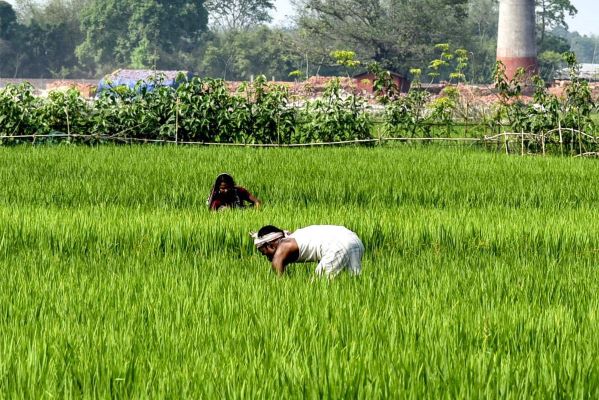India's fertile lands are facing an increasing challenge from the looming threat of climate change. Responding to this, the government has made a significant effort in formation of the Framework for Voluntary Carbon Market in Agriculture Sector. It's not just a policy announcement; it has the potential to be a game-changer, drawing inspiration from global trends and offering substantial contributions to a greener future.
Union Agriculture Minister Mr. Arjun Munda has emphasised the framework's focus on "small and medium farmers", recognizing their crucial role in India's agriculture and aiming to reach over 54.6% of the workforce, covering 139.3 million hectares of sown land. This aligns with the national goal of sustainable development, promoting eco-friendly practices like organic farming and agroforestry. Farmers can earn carbon credits for verifiable carbon sequestration activities, potentially creating a new revenue stream while contributing to India's ambitious climate goals.
Alongside the carbon market framework, the Accreditation Protocol of Agroforestry Nurseries ensures high-quality planting material for large-scale implementation. Additionally, this initiative aims to strengthen institutional arrangements for producing and certifying high-quality planting material.
Collaboration is crucial, and challenges are evident
Success, however, relies on collaboration between central and state ministries, farmers' organizations, and research institutions. Yet, challenges like ensuring responsible carbon credit trading, preventing farmer exploitation, and safeguarding natural resources are substantial. As Minister Munda notes, "we have to move ahead with caution," prioritizing both environmental and social impact.
Learning from Global Success Stories
India's initiative takes inspiration from global success stories. In Kenya, small-scale farmers earn carbon credits through sustainable practices, mirroring the Indian framework's focus on empowering smallholders. Similar to REDD+ projects in Latin America conserving forests, India's Accreditation Protocol of Agroforestry Nurseries aims to increase tree cover and carbon sequestration. These global examples promise that carbon markets can empower farmers, safeguard the planet, and reshape the future of agriculture.
Replicating these successes in India will be unique. Imagine the extensive mix of fields in different places, like the rice fields in Kerala and the wheat farms on the Deccan Plateau. This complex picture brings challenges - fragmented landholdings, limited infrastructure, and integrating small farmers into complex carbon markets raise concerns about accessibility, transparency, and fair pricing. The Indian government acknowledges these hurdles and emphasises "moving ahead with caution," ensuring responsible implementation and safeguarding natural resources.
Potential for Global Impact
If India overcomes these challenges; it might set an example for sustainable agriculture worldwide. Envision Indian farmers, supported by carbon credits, adopting practices that enhance their livelihoods and align with global climate goals. Imagine successful agroforestry systems in India inspiring similar efforts in various landscapes, from the savannas of Africa to the rainforests of South America. This could have a positive influence globally, with India playing a central role in advancing sustainable agriculture.
Critics urge caution, reminding us that carbon credits shouldn't be a silver bullet. India's framework needs to consider social and economic factors alongside environmental goals. Can it ensure equitable access for marginalized communities and prioritize the well-being of farmers above pure profit? This is a crucial balancing act, and the world watches with keen interest.
A Seed of Hope Sown
Despite the challenges, the framework represents a crucial first step. It has the potential to facilitate collaboration between research institutions and farmers' cooperatives, leading to the development of affordable technologies and transparent carbon credit verification. Additionally, it may foster knowledge-sharing workshops that empower farmers and stimulate innovation.
The world watches with bated breath. Can India, with its vast agricultural sector and diverse challenges, successfully navigate this complex terrain? If it does, it could pave the way for a global model of sustainable agriculture, where farmers become stewards of the land, empowered by carbon credits, and united in the fight against climate change.








.jpg)



